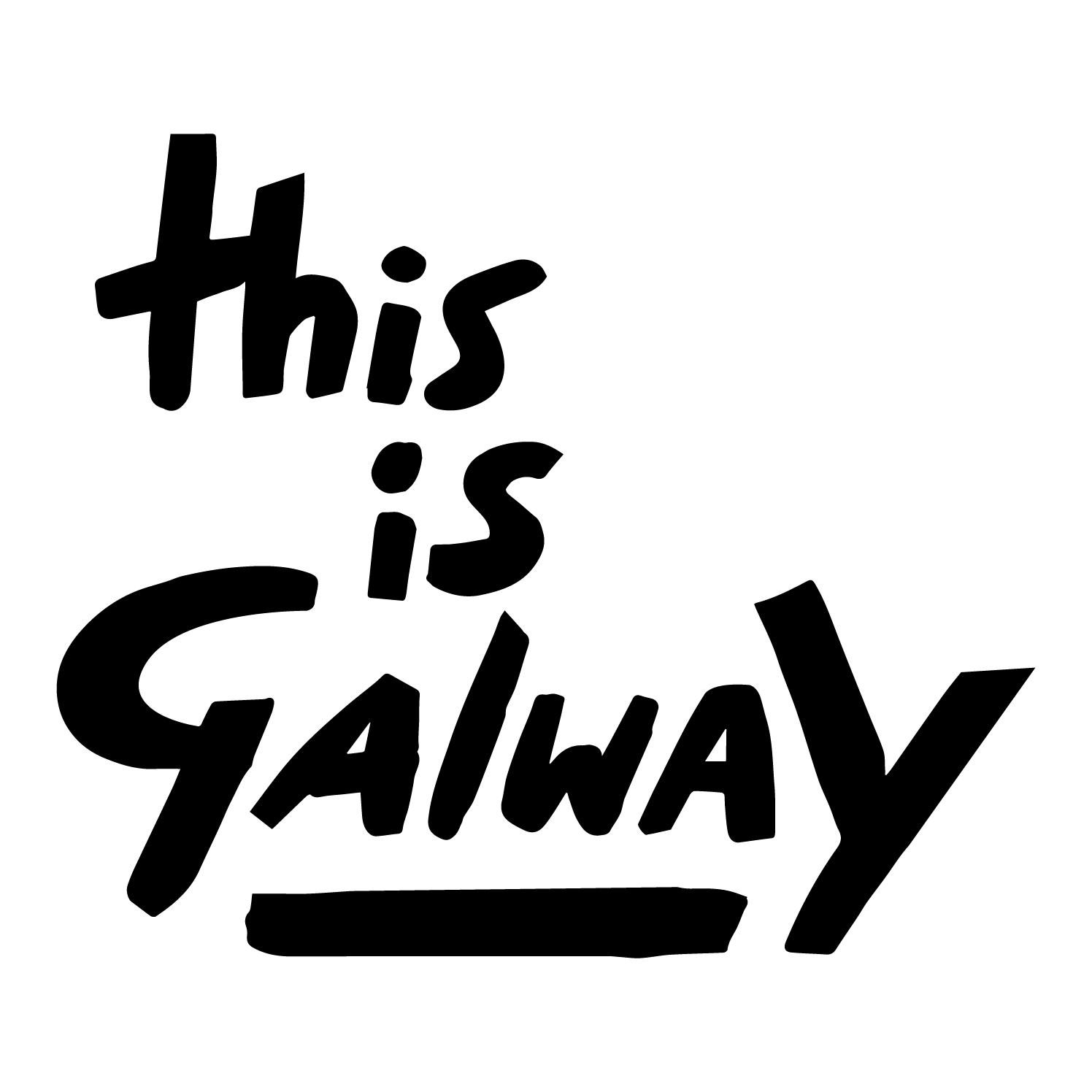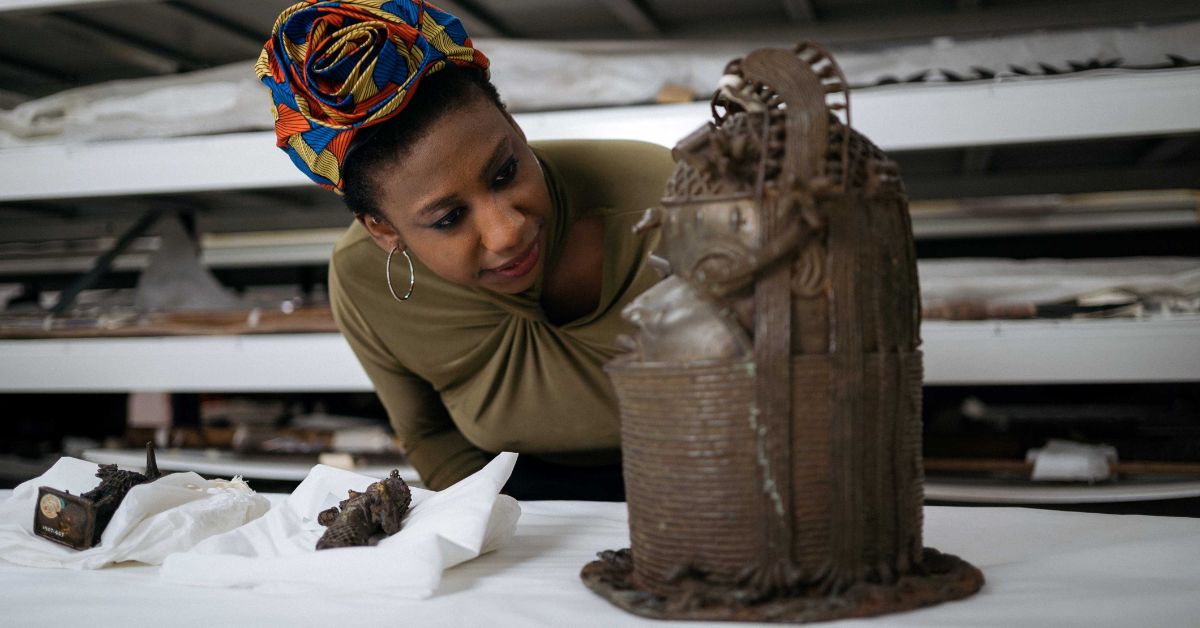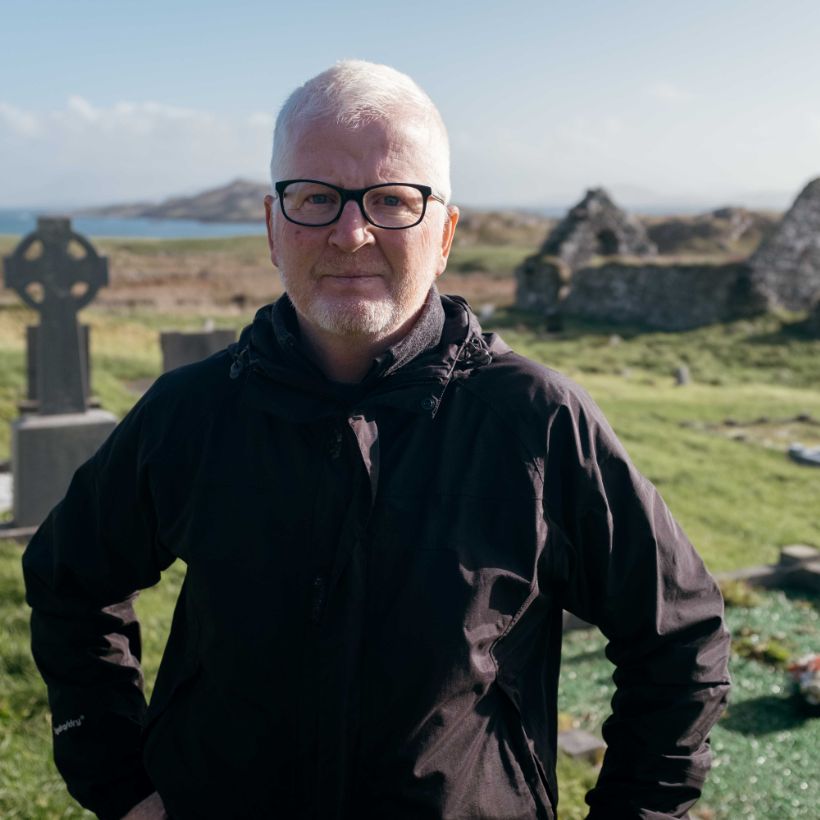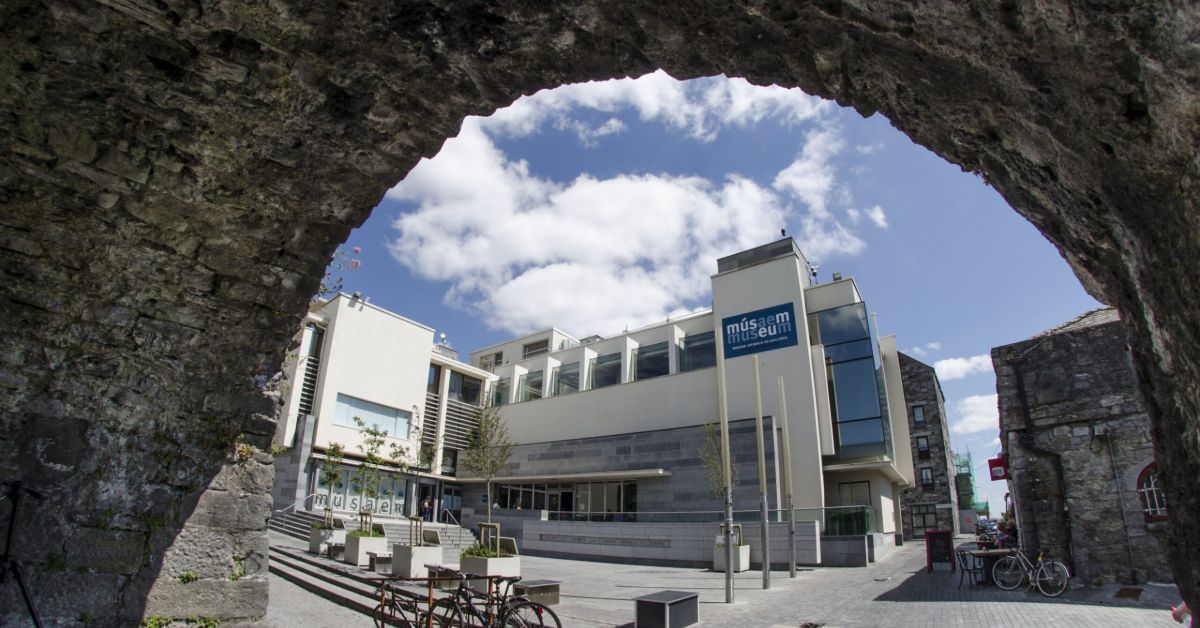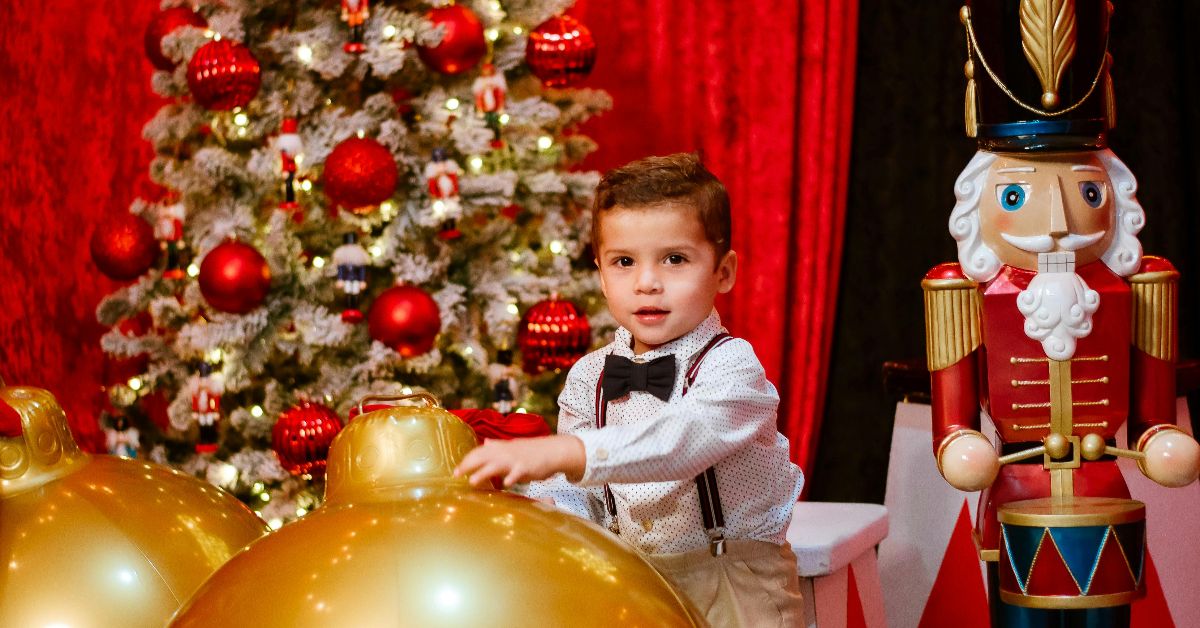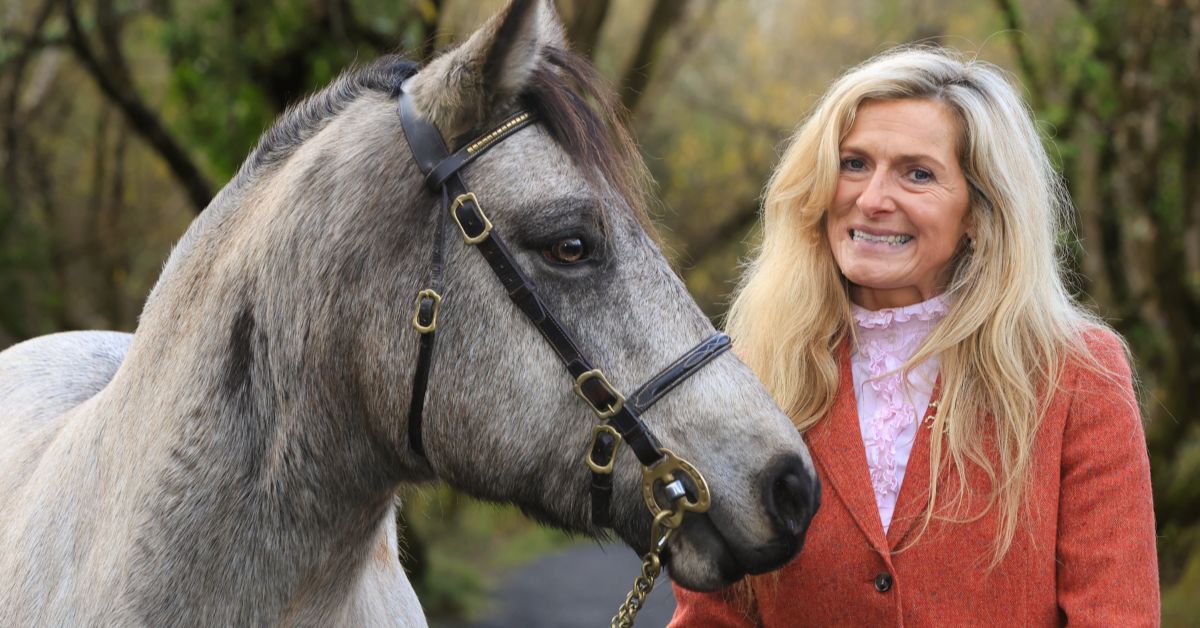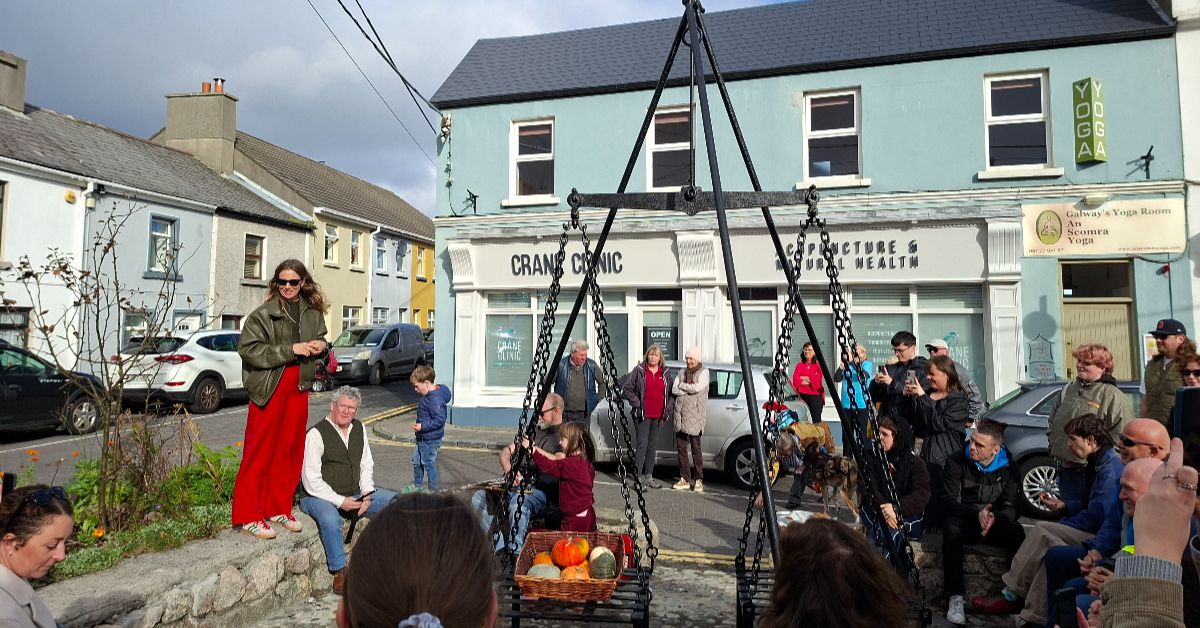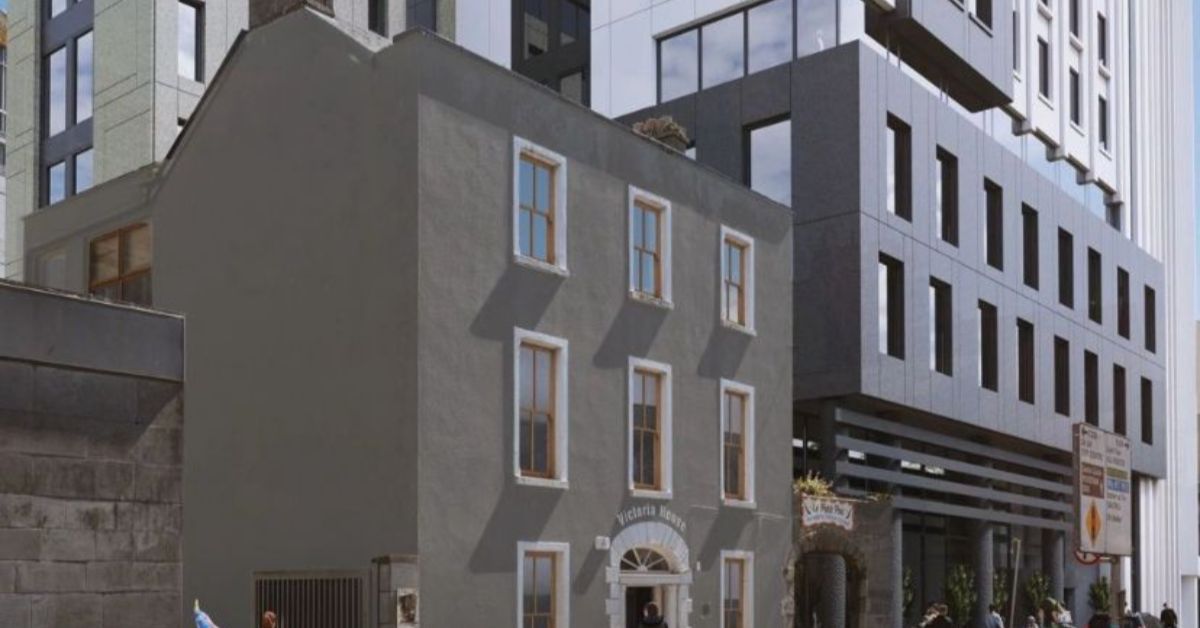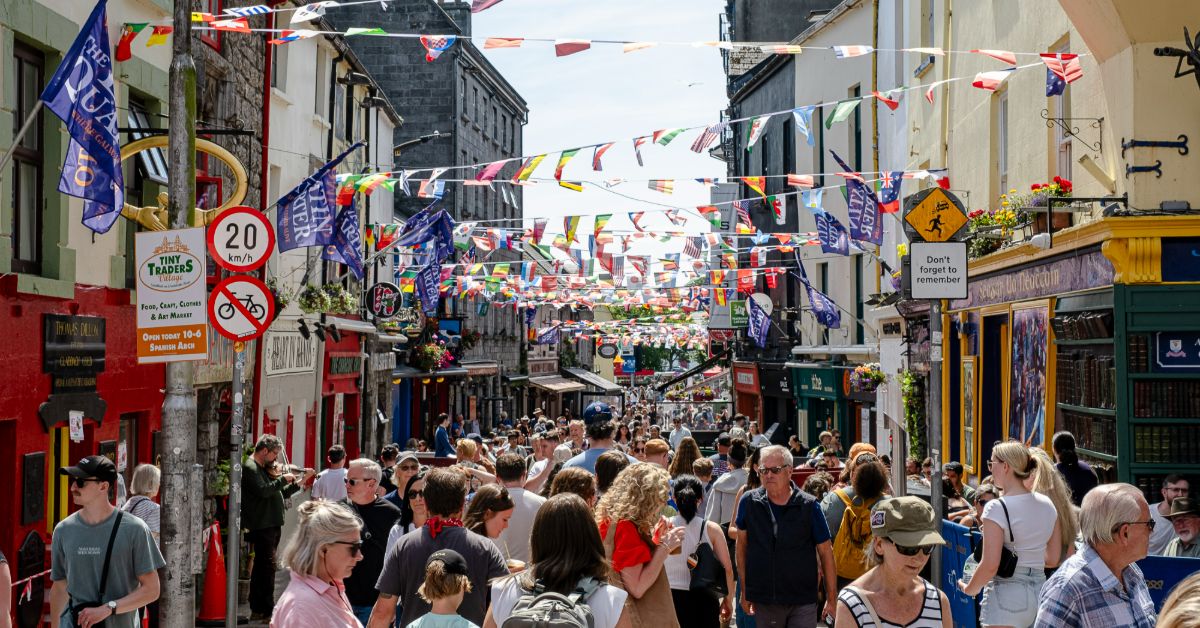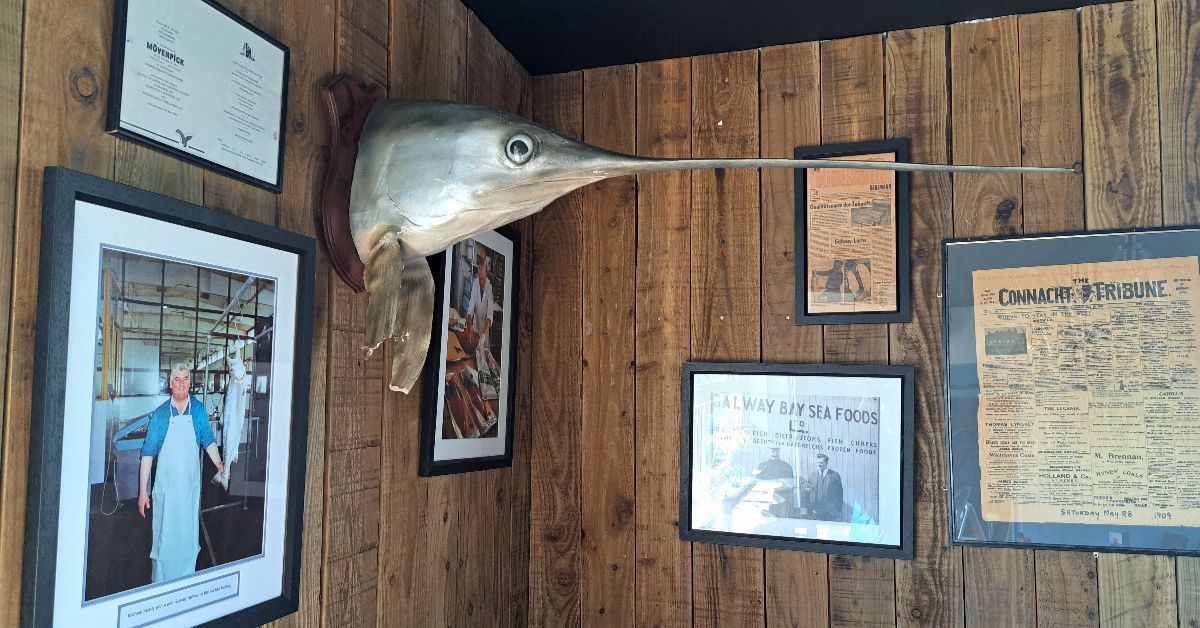Iarsmaí is a documentary that features Irish institutions as they wrestle with the decolonisation of historical collections acquired during the British colonial period. With stolen skulls in TCD, aboriginal material in the Ulster Museum, and a collection of looted Benin Bronzes in the National Museum in Dublin, the documentary explores what decolonisation means, and why Black Lives Matter protests helped encourage the decolonisation process. Read all about it below...
Directed by Damian McCann. Produced by Dearcán Media and Tua Films for TG4 & BBC with support from Coimisiún na Meán and Northern Ireland Screen’s Irish Language Broadcast Fund.
Key locations in the documentary are:
Galway City Museum: Eithne Verling engages with schoolchildren from Gaelscoil na Forbarcha – looking at the role of a museum and how museums can encourage reflection generally.
Inishbofin Island: The team visit the small island off the cost of Galway where TCD members stole a series of skulls in 1890. The islanders, and Marie Coyne in particular, assisted by Ciarán Walsh, have been putting pressure on TCD to return the skulls. The skulls were finally returned for burial in July 2023, the closing scene in the film.
Oxford: Ola Majekodunmi takes an Uncomfortable Oxford tour – exploring the city's colonial past and present with Georgia Lin. The tour includes the statue of Cecil Rhodes – there is an ongoing campaign to see the statue of Rhodes taken down.
Belfast city centre: Fearghal Mac Bhloscaigh highlights the colonial geography of Belfast's main streets and statues (Chichester Street, and the statue of Queen Victoria).
TCD: we meet the Colonial Legacies Project, led by Ciaran O'Neill. TCD students explain why they want the Berkeley library renamed (he was a slave owner). Ciarán Walsh and Ciarán O'Neill explain how and why skulls were stolen from Inishbofin and taken to TCD in 1890.
Pitt Rivers Museum, Oxford: founded by a famous Victorian collector, the museum was at the forefront of colonial museum practices. Eithne Verling meets with Laura von Broekhoven, the museum director, and they discuss the changing nature of the museum. Ola Majekodunmi views some of the Benin Bronzes, looted from her home country Nigeria, in 1897. Ola points out that some of the bronzes have ended up in Dublin as well, in the National Museum.
National Museum, Dublin: we meet Aoife O'Brien, curator of the ethnographic collections gathered when Ireland was still part of the British empire. She makes the point that while a lot of it was stolen, or taken unethically, some of it was collected, and some of it was gifted – ie not everything in museums is stolen or looted, but a lot of it is. Ola also meets Aoife to talk about the Benin Bronzes, and discusses their possible repatriation with the museum director, Lynn Scarf.
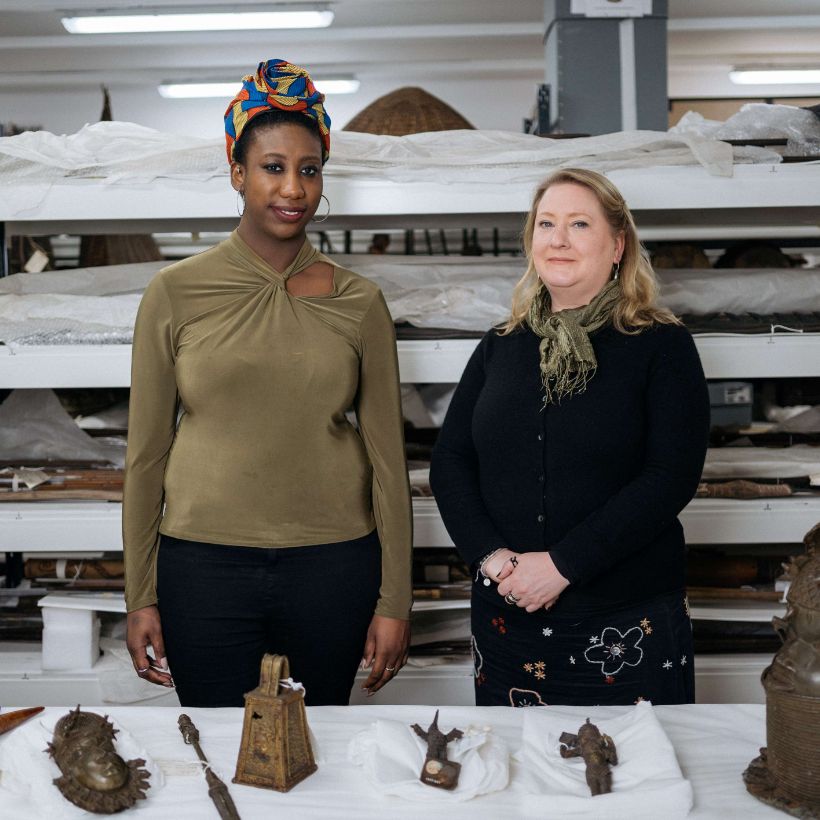
Ulster Museum, Belfast: Hannah Crowdy talks about their colonial collections, also acquired in a variety of ways, some of them dubious. We meet the Global Choices Local Voices group, of a variety of nationalities, including from former British colonies. They discuss items from the collection and contribute to the museum's approach to decolonisation.
Benin City: Ola visits the ancient city in Nigeria to speak to an historian about the colonial period. She witnesses bronzes being cast in the traditional method and also visits Benin Museum where some of the returned bronzes are on display.
Check out the trailer here;
